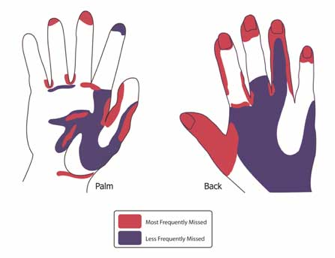I would like to know if you insist that nurses take time off with their dentist, are made to keep some back for Christmas or maybe asked to space them out throughout the year.
Answer:
This year we have imposed their paid leave and said any other leave they require would be without pay. Legally you can do this. However, you may need this written into their contracts. Have you an organisation that can advise you on employment law? As you take on new staff it is a good opportunity to change their contracts. As we close between Christmas and New Year we 'give' these days as a bonus holiday. I don't think it unreasonable that they take their leave when a dentist is off as well.
Answer:
Our team have the 20 days (excluding bank holidays) split into, as follows;
5 days must be taken at the same time as one of the dentists,
5 days may be taken as odd one off days, birthdays etc or "sick days" if they've needed time off for sickness and want to be paid, (We do NOT pay sick pay only SSP)
2 weeks at any time having been previously agreed by the manager…. all holidays need written request and written confirmation
Answer:
We ask, wherever possible, that the dentists and nurses take their annual leave at the same time; if the dentist doesn't have any solid plans but the nurse does then we ask that the dentist take annual leave at the same time to accommodate their nurse and vice versa.
The dentists have more annual leave available to them compared to the nursing / reception staff which allows us to grant leave that doesn't tie in elsewhere.
Annual leave is granted on a first come first served basis.
We don't ask anyone to hold holidays for the Christmas period but it is understood that if the practice is to be closed and they have no AL remaining that the employees will be asked to take unpaid leave rather than being idle at work.
We suggest to all that the leave is spread throughout the year, with no longer than 3 weeks requested at any one time
Answer:
I do make nurses keep back time off for xmas, and also say at interviews that when possible can they take holiday when their dentist is off but it doesn’t always happen
Answer:
Holidays are always difficult. We find it very difficult in the first place to get the dentists to confirm too far in advance when they will be off! Some of them are never off! and some of them take long breaks at strange times – i.e 4 weeks in January !!
We don’t insist on the nurses taking the same time as their dentist, and sometimes they do, but we do try and ensure that one nurse is off when a dentist is off, this usually works quite well. We also try and ensure that they space their holidays over the year and not have too many left to take Nov/Dec time.
Answer:
I insist staff take 2 weeks when a dentist is off and save 3 days for Xmas. Most my staff realise the problems of taking holidays when dentist are in and work around that. As a thank you I always allow unpaid leave, so they take advantage of that.
Answer:
I have been managing a practice for 19 years and always run the same system. Staff must keep holidays to cover the time between Christmas and New Year, and after that staff are given priority in the order in which they were employed.
Answer:
I co-ordinate all of our dental nurses annual leave in conjunction with dentists, it does not have to be their own dentist, I can rotate with the other dentists. But, to ensure smooth running efficiencies two weeks of a nurses leave has to be taken with a dentist (within reason).
We try and give fair holiday entitlement and also 8 days bank holiday a year, so that we can reserve some of their entitled leave for Christmas closedown.
We have a meeting each January and the staff all agreed they would like xmas closedown so were more than happy to reserve a few days for this.
Answer:
At our practice, we do a little of all.
1. Staff are required to keep a minimum of three days for the break between Christmas and New Year given that the practice closes during this time. (Actual amount of reserve may vary from year to year depending upon what days Christmas and New Year fall on).
2. It is our company policy that all staff must split their holiday leave pro-rata over the year. This is to prevent all leave being taken in the beginning of the year and then having nothing left and also to avoid storing holiday leave up and then taking a huge amount towards the end of the year and during busy times.
3. Whilst not compulsory, we do also request that wherever possible, staff should book their annual leave at the same time as the dentist.
Answer:
I think our practice has been very lenient over the years (possibly too much sometimes!) – nurses are encouraged to have time off with their dentists,
but it doesn't always happen! However, if a nurse is off whilst a different dentist is off, the original one just swaps shifts/surgeries and works for
the other dentist.
We don't always like it if a nurse and receptionist on the same shift have too much time off together, as it gets hard to cover both. Staff only have
to work one day at Xmas too, so they don't need to store lots of hol up either!
With 4 dentists working 2 shifts and 19 nurses and receptionists, working both shifts, to accommodate, it isn't always easy; but as most are part-time
and job-share, they tend to cover each other and I cover reception in the busy holiday period.
Answer:
Nurses take time off with their dentist preferable! (If the dentist takes two weeks then the nurse has to take the two weeks with him/her and then still have the option of her own choice of two weeks consecutive- this is then a win win situation for both.
School holidays/ nurses with children know that this will be their first choice but this time needs to be shared with the other nurses that need time in the summer holidays as well. (Plan ahead in the year and let them share one year IN /OUT)
Two weekscan be consecutive the remainder need to spaced out and what best suits the practice. (unless a nurse takes time with the Dentist)
Answer:
We do a sheet with a holiday request that the nurses fill in, then we check the schedule to see if it’s convenient for them to take leave then, we only allow one nurse or one receptionist off at any one time. Also we give a bonus if you take leave when the dentist is off i.e. if the dentist is off for a week and you take that week, it only cost you 3 days of your leave instead of 5 . It doesn't work for all the staff especially the ones with children as they need school holidays but most of our nurses like this. Yes you can say that they need to keep a proportion of their leave to cover the Christmas period.
Answer:
Most of our nurses take holidays when they want and we cover them with myself and a receptionist who is also training to be a nurse, however, we do try to encourage as many people take time off when the dentists take their holidays as it makes more sense, but we would not insist. Most of them take the time off anyway.
It is stated in our contracts though that there may be compulsory holidays throughout the year especially at Christmas, so it is there if we need it
Christmas we are only open for 3 hours each day in between Christmas and New Year so most people prefer to take it off as it can be quite boring.
Answer:
We are quite flexible with holidays and operate a 'half-rate' system which works that if a nurse takes time off when they are not needed (ie when a dentist is off) they get it at half-rate, ie two days taken off when they are surplus means only one day is deducted from their holiday allowance. This encourages nurses to take time off at a better time for the practice. More recently we have had to cap the amount of half-rate holiday taken to help distribute it more fairly. We've operated this system for 10 years now and it works well for us.
Answer:
Our nurses have 5 weeks holiday: 2 weeks have to be taken with dentist (dentist may have to fit in with nurse), then 3 weeks when there is availability. Our practice is not closed so we do not make them take time off near Christmas etc.
Answer:
Our Nurses do not necessary take the same holidays as there dentist, sometimes it works out. We have two rules 1. Only one nurse of at a time 2. They must keep holidays for Christmas break. Plus 6 weeks notice has to be given for holidays longer then a week, that way you have time to sort out any problems regards getting extra staff, any nurses working part time can re-arrange there work days.
Answer:
We ask all nursing and other (i.e. reception) staff to take their holidays at the same time as our two dentists and therapist (who also take their holidays at different times to ensure emergency cover) – usually nursing staff and dentists / therapists have discussions amongst themselves to agree mutually convenient times. So far I haven't encountered any problems with too many staff wanting to take holidays at the same time. I have also introduced a clause within contracts of employment that holidays will only be agreed with at least one months written notice and only if such a request is compatible with continuity of services – this makes it easier to refuse a holiday request if we have concerns regarding adequate staff cover. Also, staff are generally fairly sensible with regard to taking holiday over the twelve month period – I have never encountered anyone wanting to take all their holiday entitlement within a short period of time – they generally stagger it over the twelve months.
Answer:
Our only request and we have it written into their contract – is that they take 50% of their holiday with their GDP.
Answer:
I have it in their contract that 2 of their 4 weeks must be taken at the same time as a dentist but not necessarily dentist they are allocated to work with. This gives a bit more flexibility. Priority is given to the nurse the dentist works with and then offered to others if nurse doesn't want that date.
Answer:
We close the practice Christmas week so everyone has to save holiday to accommodate this. We do not specify when other holidays must be taken, although as a single handed practice it is more convenient if staff take holiday when the dentist does. Holidays have to be agreed with us & I try to discourage everyone taking holiday the week after another staff member has been off.
Answer:
We try and encourage our nurses to take time of with their dentists, but don’t insist (a difficult one to deal with!), we do how ever ask them to keep holiday to take over Christmas but on some occasions have had to ask them to take unpaid as they have used up all their allocation.











